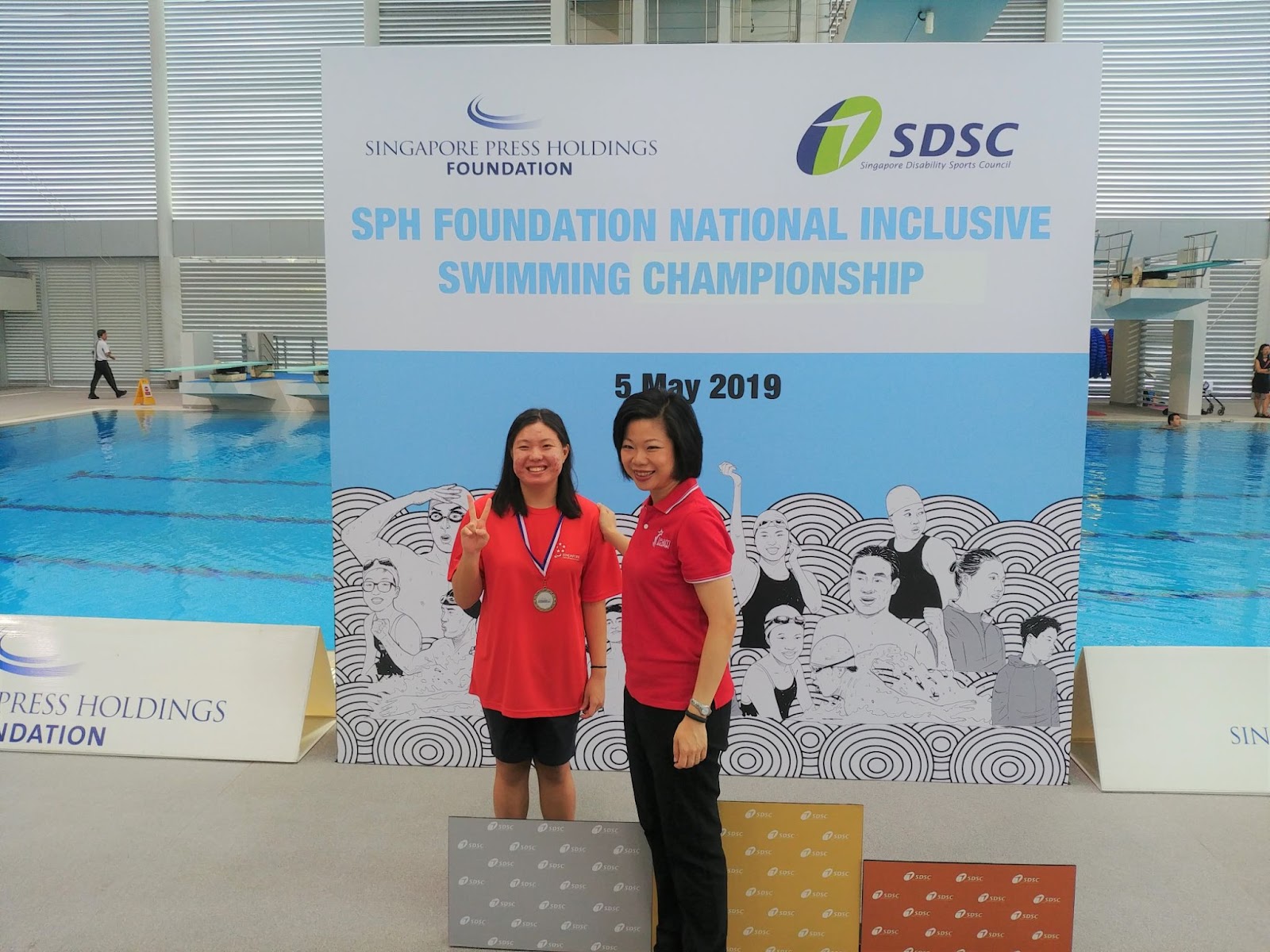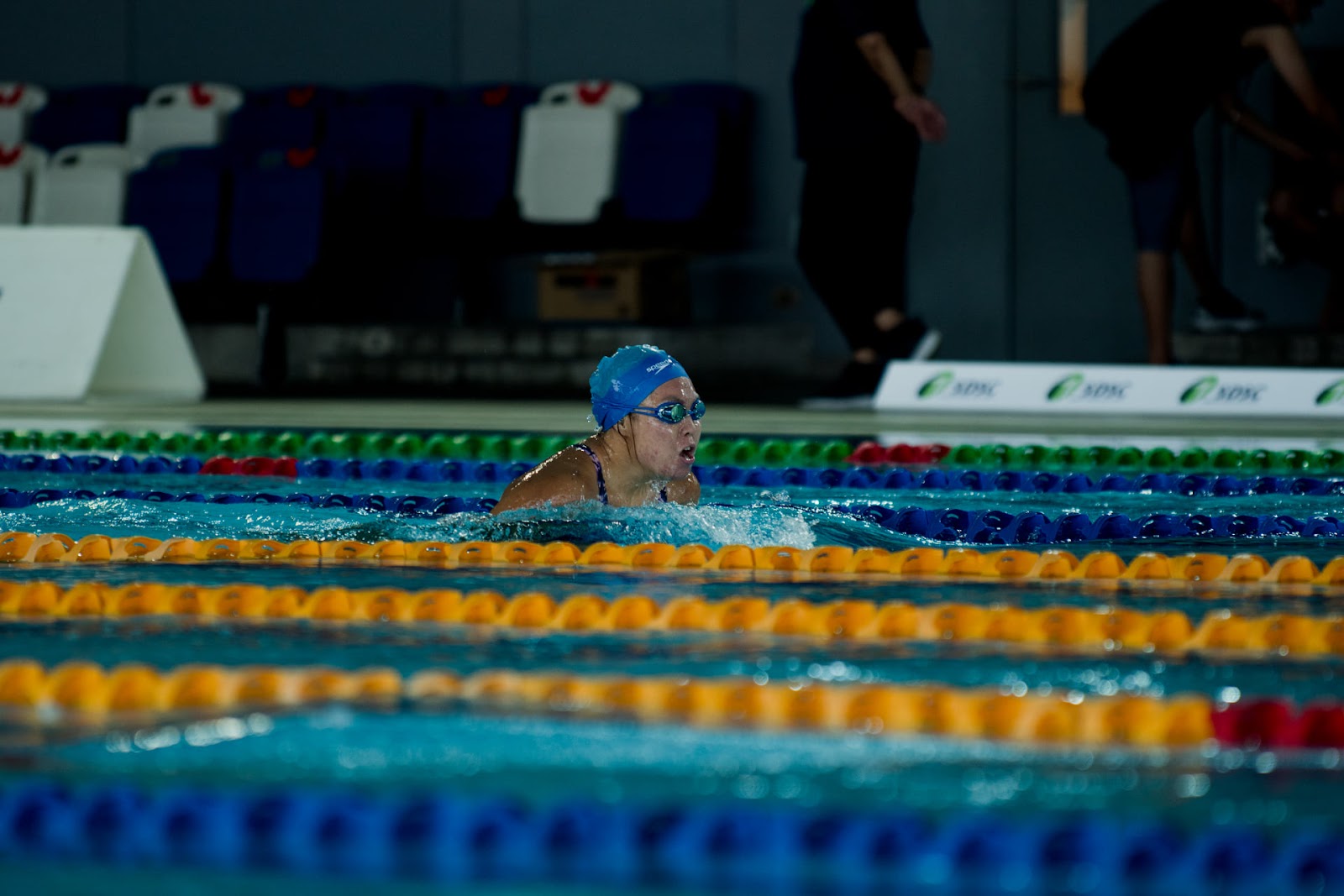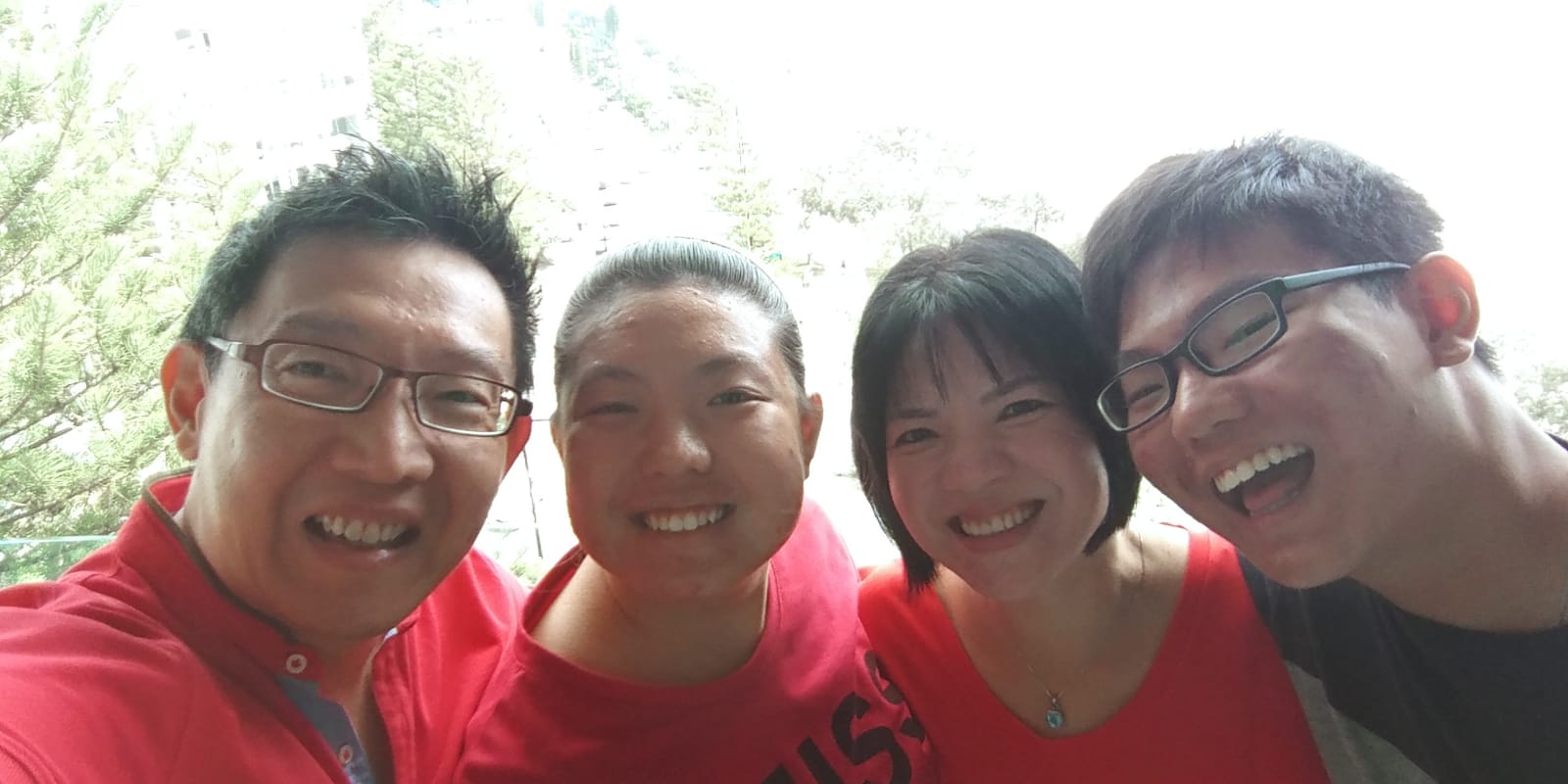By Siti Musfirah
As early as 9 months old, Clarence Fu and Ferin Fu exposed their daughter, Nicole Fu, to water. When dunked in the water, she did not cry even once and seemed undaunted waddling in the swimming pool. In fact, as Ferin recalls, Nicole instinctively swam very hard to reach the surface.
“At about 3 years old, my in-laws would bring her to the club to swim every week unless it was raining. Along the way we realised she is a water baby, so we exposed her to a lot of water activities,” said Ferin.
Nicole, now 21 years old and a national para swimming athlete, first received her diagnosis of duo-disability (low IQ and autism) at the age of 5 years old. Her parents noticed something different about her during her early childhood, and realised they had to do something for their daughter. Although they knew at the back of their mind what to expect, acknowledging their first child’s diagnosis was never easy and acceptance came with time.
“(Throughout the) first few years after her diagnosis, we tried a lot of therapy and modification of her behaviour and you can see a lot of struggle. Along the way we had a lot of support from family and friends. The accepting part will take a while, but when you accept her as who she is, that is when you will feel at ease with yourself, and your child will be happier too,” said Ferin.
The Start of Competitive Swimming
Nicole’s love for water became more apparent when she participated in water activities in preschool. At the age of nine, she embarked on a weekly swimming training with a personal coach. A few months later, her coach signed her up for her very first swimming competition held by the Singapore Disability Sports Council (SDSC) at the Singapore Sports School.
“There was a lot of anxiety preparing her for this swimming competition. Will she be able to follow the rules? Will she jump on the go?” recalled Ferin.
Competing in the 25m freestyle event, the inexperienced Nicole started diving into the pool only eight seconds after the horn went off, yet she was able to finish in fourth place. Reflecting on what could have been done better and recognising Nicole’s strength as a visual learner, her coach created a visual board to emphasise the competition rules to Nicole, and, to suggest improvements to Nicole’s technique. In her next swimming competition the following year, Nicole managed to finish first for all the events she participated in and deservedly received the “best overall performance” award.
At just 15 years old, Nicole participated in her very first overseas competition, the Special Olympics. In 2017, she qualified for the Kuala Lumpur ASEAN Para Games (APG) and Asian Youth Para Games (AYPG) in Dubai.

Her first APG did not come without challenges. Prior to the overseas competition, Nicole’s parents and her coach prepped her extensively, creating an activity booklet containing her daily schedule and important information to allow Nicole to understand what to expect.
Unfortunately, Nicole fell sick a few days prior to the APG and by association, this resulted in a negative competition experience that would affect her at overseas competitions. Nicole’s confidence plummeted and affected her preparation for the subsequent AYPG in the same year.
After Nicole’s return to Singapore, training was scaled down to three days a week instead of six days. However, the reduced frequency of training did not affect her performance. Instead, Nicole managed to beat her personal best timing for her freestyle event by four to five seconds.
“So we realised something, for Nicole or for everyone, if you do it happily, you do it well. So it works for Nicole and she really enjoys it,” said Ferin.
With consistent performances in the pool, Nicole managed to qualify for the APG in the Philippines. However it was cancelled due to the COVID-19 pandemic that began in 2020.
Sport as Means to Prepare for Life
“I think swimming prepared her (Nicole) for life,” asserted Ferin.
For an individual with autism, routines are especially important and changes could be difficult to cope with. As Ferin shared, Nicole is very self-disciplined after a routine has been established. Swimming has helped Nicole to understand that in life, changes are constant, such as not being able to go to the pool on rainy days and switching to land training, changing of coaches, and different methods of instruction. Nicole has shown a lot of maturity and has taken initiative in her own sports journey, actions that her parents did not expect.
“Along the way, she understands that sometimes things don’t go her way and she has to accept failure and do better next time. We try to give encouragement by celebrating the small achievements, not necessarily (for) first place (only), but for example, ‘let’s beat your (best) time; you are competing against yourself.’ Just know that if she makes this small improvement, one day she will go to the national platform,” said Ferin.

As a parent to a child with special needs, Ferin believes that it is important for her daughter to enjoy the process. Sport requires a lot of effort which also comes with muscle aches, yet it is definitely a rewarding journey with moments to celebrate especially seeing how far Nicole has progressed.
“It is heartening to see when she embraces this sport, the family comes together and becomes closer to support Nicole, even from extended family. It is definitely a rewarding journey for both Nicole herself, and us as parents” said Ferin.
This article is dedicated to Ferin and all mothers, who selflessly give their all for their children, striving to create the best possible environment for them growing up and showering love on the people around them everyday. We wish you a Happy Mother’s Day.
